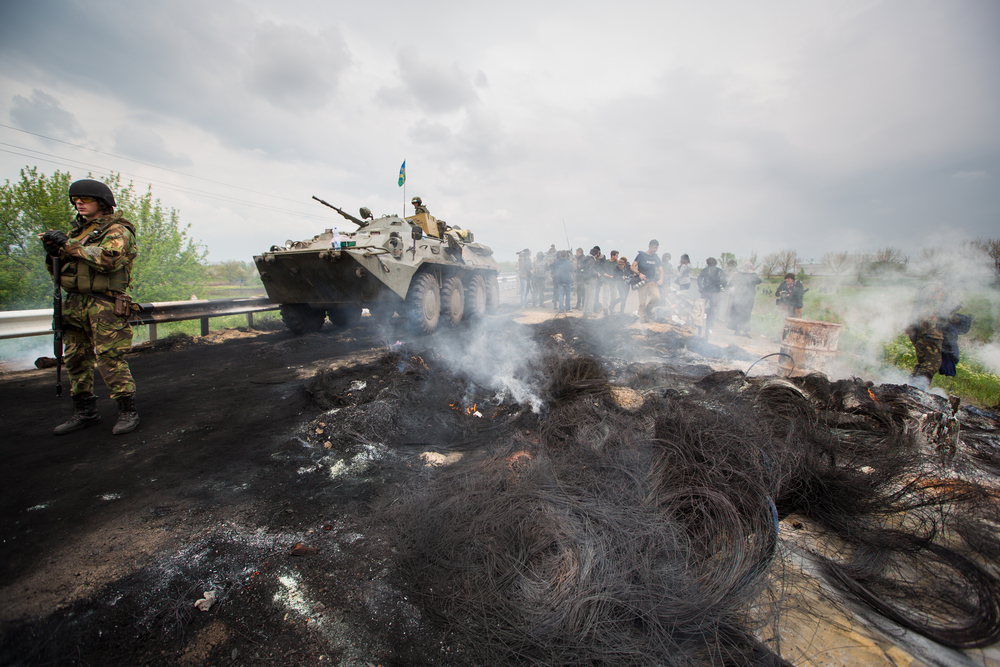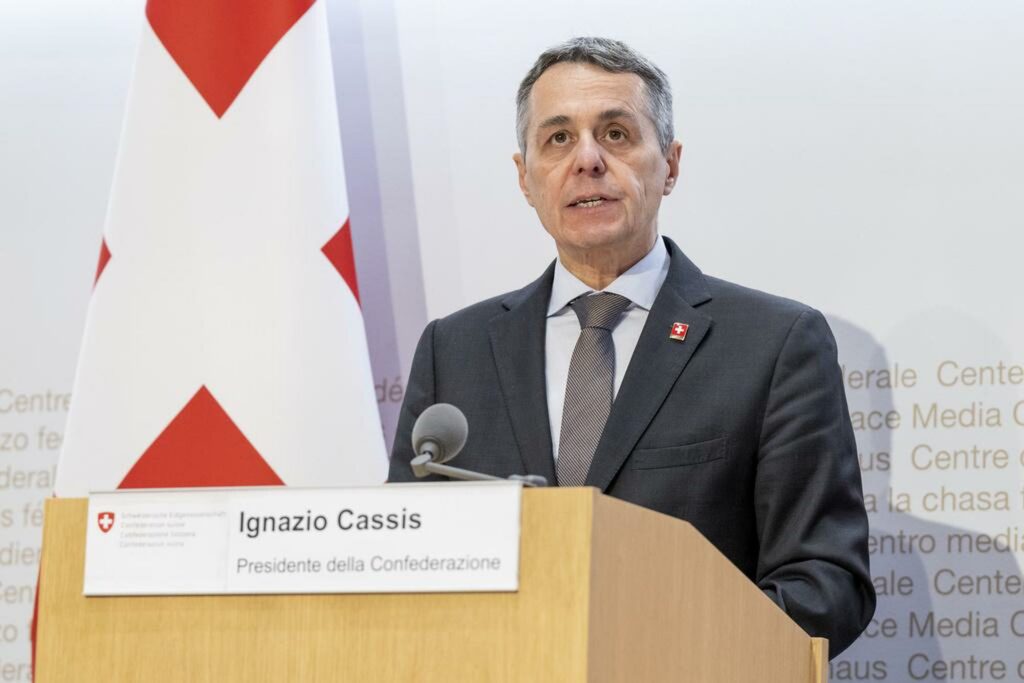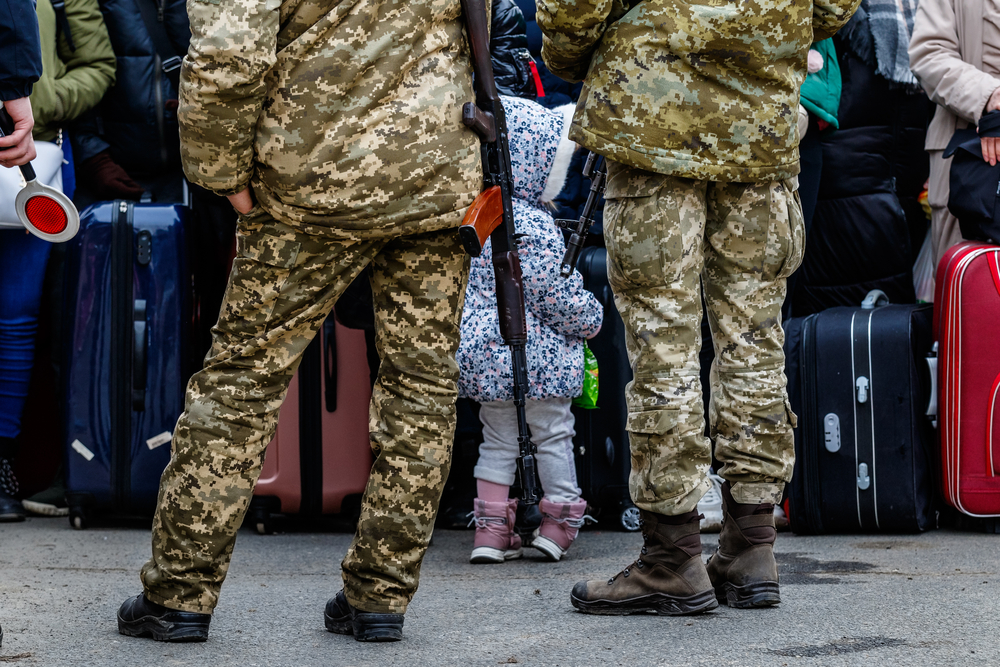Thu, Jun 30th 2022
It has been more than 100 days since Russia invaded Ukraine and provoked a war that has garnered global attention. On Wednesday, Switzerland implemented its sixth round of sanctions against Russia — stepping further away from its historical neutrality in times of war.

On the ground in Ukraine where Russia’s invasion has gone on for more than 100 days.
Swiss government officials announced last night that the country’s Federal Council has triggered its sixth round of sanctions against Russia, including an embargo on crude oil and various refined petroleum products.
More far-reaching sanctions
“Similar to the measures applicable in the EU, the purchase, import, transit and transport to or within Switzerland are prohibited,” officials announced this week, referring to the EU vote on June 3rd to sanction Russian oil.
“In addition, the embargo provides for a ban on the provision of services, including insurance or reinsurance, in connection with the transport of oil and certain Russian petroleum products,” they added.
Services with the Russia government such as business consultancy, accounting and public relations are now also banned under the sanctions. This includes Swiss companies buying advertising content that is produced by or broadcast by official Russian media outlets such as Sputnik News or Russia Today.
How sanctions are squeezing the Swiss luxury market

Swiss President Ignazio Cassis has been both applauded and criticized for the country adopting sanctions against Russia as it is a move away from neutrality.
The complicated business of neutrality
Swiss President Ignazio Cassis announced in February that Switzerland would take a historical step away from its longstanding neutrality to “fully adopt EU sanctions.”
At that time, sanctions included freezing assets belonging to Russian President Vladimir Putin, Prime Minister Mikhail Mishustin and Foreign Minister Sergey Lavrov, as well as 367 individuals. Shortly after, the country closed its airspace to Russia and imposed entry bans against individuals who are connected to President Putin.
“It is an unparalleled action of Switzerland, who has always stayed neutral before,” Cassis said at that time.
Since the war has progressed, Switzerland has time and again re-defined its brand of neutrality amid criticism from both sides.
Why Switzerland is a Russian ‘espionage hotspot’

Swiss citizens have been outspoken against Russia’s invasion of Ukraine since the start.
A timeline
March. The government announced that no Russian money was coming in and out of Switzerland and that at least ten Swiss properties belonging to Russian oligarchs had been frozen. A report published days later found that only about $8 billion of Russian assets have actually been frozen, despite the Swiss Banker’s Association estimating that there is about $150-200 billion of Russian funds in Switzerland. Bank officials say most of that money is being held under different aliases or under lawyers working for oligarchs, and some smaller, private institutions are not trying to lose Russian customers.
April. A few members of Switzerland’s left-wing Green National Party, including Council President Irène Kälin, traveled to Kyiv and met with Ukrainian President Volodymyr Zelensky. Although the guise of the visit was to discuss financial and humanitarian aid, the move was an unprecedented one for any Swiss politician. The right-wing Swiss People’s Party condemned the visit, calling for Switzerland to further strengthen its claim to be neutral in times of war.
May. Germany’s Chancellor Olaf Scholz announced that Germany could not deliver badly needed Marder grenadier tanks to Ukraine as expected because Switzerland backed out of filling an order to produce ammunition which goes in the tanks. Exporting ammunition to even a middleman and then onto “countries involved in intensive and long-lasting internal or international conflicts” violates the country’s War Materials Act, says Switzerland’s economics minister.
Switzerland refuses to send tanks to Ukraine
June. Danish government officials announced that Switzerland vetoed its request to send Swiss-made “Piranha” armored vehicles that would be used in Ukraine, again referring to the War Materials Act.
Later that month, a report uncovered that a handful of companies have continued to do business with Russia, including 20 that have increased their shipments of Russian oil. These smaller companies have been able to fly under the radar, while big names like Glencore and Trafigura have publicly announced they will diminish their Russian oil imports.
‘Sanctioned’ Russian oil funneled through Switzerland

Switzerland has welcomed nearly 50,000 Ukrainian refugees since the start of the war and expects tens of thousands more.
What’s next?
Although the majority of Swiss households do not directly depend on Russian oil, they do source much of their energy from countries such as France who do rely more on Russian imports. Swiss officials warn that residents should prepare for blackouts over the next nine months. Moreover, Swiss companies have been advised to explore power-rationing solutions immediately.
This article may be freely shared and re-printed, provided that it prominently links back to the original article.
